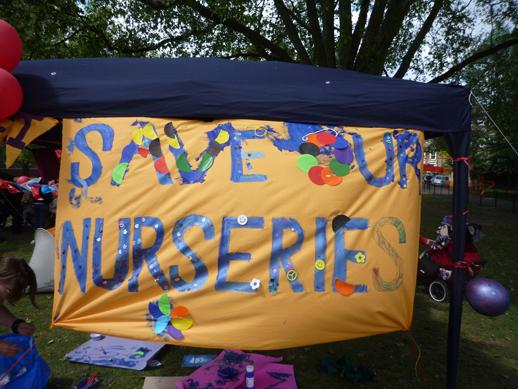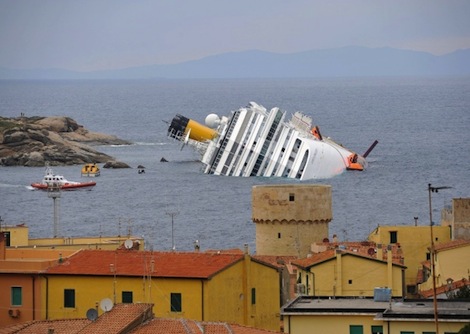By Kai from Plan C Manchester
In recent weeks it has been heartening to see the levels of solidarity extended to junior doctors during a time of what we must consider one of the most significant and damaging assaults on the welfare state in decades. May this long continue. However, it should not be the case that because our collective backs are up against the wall, those of us on the ‘radical left’ feel obligated to mechanically extend uncritical solidarity in all respects. Neither should it be the case that we remain quiet or even complacent for fear of intervening at the wrong time on a matter of such significance. Now is precisely the time for extending critical solidarity with the hope of building collective strategies of intervention within and beyond the current NHS debacle. I submit the following with this aspiration in mind.
Major political disagreements aside, it is striking to see a curious agreement between the BMA and Conservative government at the level of first principles: Capitalism is here to stay. What must be decided is how it will be lived.
In effect the entirety of the dispute takes place within the confines of the tenth chapter of Capital Vol.1 – The Struggle for a Normal Working Day. Strategically, the fact that we are still well within the confines of this 149-year-old chapter should cause some concern for those of us on the left. Regardless, here’s a summary: Capitalism divides time between work and leisure. Our work time is further divided into hours, minutes, and (if you work for Nike in a sweatshop in South-East Asia or Amazon in Doncaster) seconds. It is the task of the capitalist to make this time as productive as possible. It is the task of the worker to use what leverage they have (given that they must sell their labour for a wage to survive) to make this time as livable as possible, to shorten the working day, resist audit cultures, the speeding up of processes, and so on. Leisure time, meanwhile, is used for consumption. The worker is paid for their time in the factory and with their pay they consume factory-made products. Consumption immediately feeds back into the production of the wage-relation and the production of surplus-value for those who own the means of production. A never ending cycle of exploitation ensues.
Now of course, this is grossly oversimplified and, among other things, does not take into account:
-
• The unpaid labour of household and reproductive work;
• Informal labour in the developing world;
• The valorization of affective and cognitive labour outside of the workplace;
• Biopolitical forms of valorization
No doubt all of these are involved to some degree or another in the recent NHS strikes. Nonetheless, given that the crux of the dispute now seems to be over the existence or otherwise of a ‘seven day NHS’, it is fair to emphasise the centrality of time. The fact that the junior doctors are not calling into question the divide between work and leisure is perhaps why those of us on the ‘radical left’ have struggled to say much about this latest round of austerity. On the one hand, solidarity must be extended to those whose services have bared a disproportionately large share of the Conservative government’s ideological assault on the welfare state. Over the past 6 years it has become increasingly clear that we will not see the dramatic dissolution of the NHS. On the contrary, its cause of death will be that of a thousand cuts, plummeting standards of care and a resultant public outcry. Under these eventual circumstance, what choice will we have but to let the good old private sector come in and pick up the pieces of a stretched and out of date public healthcare system? Of course we must support the doctors in their struggle.
Yet on the other hand, the current debate seems stuck within what Mark Fisher, following Frederic Jameson calls ‘capitalist realism’. Jameson famously said that it is easier to imagine the end of the world than it is to imagine the end of capitalism. This undoubtedly holds true for the current strikes and negotiations: both capital and labour are in acceptance of the (false) divide between labour and leisure, ‘free time’ and ‘work’. Under these conditions, the dispute can at best lead to a capitalist ‘compromise’ with the demands of the junior doctors: ‘Okay, okay, we won’t impose this contract on you, but you simply must accept these compromises in return…’. This kind of dialectical ‘resolution’ is as good as defeat.
The problem is that though the doctors and Conservatives are at odds to its use, both take for granted a functional concept of time and a logic of proprietorship and accumulation within everyday life. It is a battle of ‘us’ versus ‘them’ for the finite resource of time.
This, I think, is where the Letterist International can contribute something of value. Whilst the theory of a divide between the time and space of work and leisure has received a lot of attention from activists and critical theorists, the Letterist International provide us with a critical practice in and against capital: they called it dérive. The word has several meanings. Its Latin root is ‘derivare’, meaning to draw off a stream or divert a flow (incidentally, this is where English gets the words river and derive from), but the words whole field of meaning is aquatic. To think of dérive should be to think of eddies, flows, streams, rivers, seas, floating and sailing. If the labour-leisure relation is dialectical, dérive is decidedly not so. Its function is to call into question the labour-leisure dyad by beginning elsewhere: in a refusal of work.
Dérive contains within it a certain relation to time and to the space of the city, the workplace, the home and the individual. For the Letterist International, dérive called for ‘workers’ to take off their shackles and take to the streets. Not to protest, but to find new ways inhabiting our cities, of thinking and of being together outside of the wage-relation and labour-leisure dyad. For dérive there is no line to be drawn between the spaces we occupy and the spaces within our heads. How we think, behave and comport ourselves are folds of the world; our thoughts are the world looking back at itself through tired eyes. The city, institution or street becomes a playing field for thinking and being elsewise.
Refusal to work is not some idealistic dream. I am not for one-minute suggesting that junior doctors can simply put down their tools without individual and collective repercussions. I am, however, suggesting that the existing model of folk political protest or one-day strike action has run its course. We need new strategies and new interventions.
As I read it, dérive is a method for creating forms of knowledge and practice outside the divisions of labour, outside divisions of class, and outside divisions of the academic disciplines, artistic practice or professional skill. As a practice, it calls on us to think beyond ‘us’ versus ‘them’ antagonisms and to compound individual, institutional and social struggles. This is not easily done when we each have our own strata, our own constraints, our own labour-leisure dyads to abide by. Capitalism succeeds when we accept the individualization of these struggles and anxieties. Yet recognizing the collectivity of struggle is not as simple as extending solidarity (a phrase that in every instance risks exonerating us from further engagement). It would mean something more like acknowledging that our social spaces, institutions and forms of being are products of our collective capacities, actions and inactions. Micro-political engagements of any sort would need to take on a macro-political import. We would need to make it abundantly clear that there are forms of labour that cannot be quantified within hours, minutes or seconds; upmost amongst them the reproductive, emotional and affective labour of junior doctors. This is the kind of labour they do even while they sleep. Concomitantly, dérive calls for radical experimentation. It is all too clear what isn’t working in our current struggles. What is less clear is where we might go from here. Where should we place our efforts? Where might we best achieve leverage? How does one account for forms of labour, such as care, that cannot be quantified and that fall well outside of Marx’s tenth chapter? It may be that the formal strike has outstayed its use as a measure of struggle against work and that we ought to consider thousands of micro-refusals in the course of the day. It may be that we need to think beyond institutional strikes and towards a collective social strike. Or it may be that we need to refocus our efforts on the comparatively unexciting task of building platforms and infrastructures of engagement, extending scales from the situated and specific to the general and collective. In what will seem like a prevarication, I cannot say what these practices would mean concretely (that is for us all to decide). I can, however, address some obvious and to my mind unsatisfactory criticisms:
1) We’ve moved away from the problem. This is the worst kind of theoretical grandstanding. Try working a day in your life.
We have not moved away from the problem; we have simply repositioned it. Instead of beginning from a position of weakness, from an appeal to an uncaring government to see sense, we begin from practical political engagement in the field. We educate ourselves and each other, we share knowledge and capacity and we organize against actually existing forms of oppression; all the while aware that capitalism loves nothing more than to subsume our dissent within its matrix.
It is as true as it is trite to say that today’s subversive sub-culture is tomorrow’s ASOS sale. Let’s acknowledge this fact and push past it by thinking outside of the usual us (workers) them (capitalists, bosses, bank managers) relation. Let’s begin by calling into question the ‘us’ from which we stand, not in some self-defeating reflexivity, but through collective acts of engagement that blow apart our existing stratifications and constraints.
Theory for theory’s sake is a crime. Useful theory that emerges through practice is an aspect of the commons. Even the anti-intellectuals have a theory; one all the more deceitful for concealing itself as straight-talking ‘common sense’. There is no practice without a theory of engagement. In today’s world, those of us fortunate enough to be in a position to be able to think, to read and to write are truly blessed, those who are paid to do so all the more so. Positions of relative privilege should be beneficial to all. We should hear what everyone has to say and know that those of us with the loudest voices are not always the best informed. We do not know even what we are presumed to.
2) There is no outside to capital or the wage relation. We live under what Marx, and the autonomists after him, called ‘real subsumption’. Optimism of any sort rings hollow.
The Outside to capital is very real. No doubt we are deeply integrated in a world-wide system of valorisation but we see the limits of capital everyday. On the one hand, we have the ecological limits that press upon us, demonstrating the dwindling carrying capacity of the earth’s resources. On the other we have our capacity to think and act in ways that are unexpected, unanticipated, and formidable. Capitalism is an apparatus of capture but it can never capture everything. Something always escapes, spills out, and produces something new. We need pragmatic experimentation, not a theory of stasis. We need a practice of dérive, not a list of demands.
3) What you speak of is utopia.
Utopia today is not found in those of us who call into question capitalist realism but in those who think we can do anything otherwise.
With thanks to Ben, Jane and Luke for their comments and suggestions.




